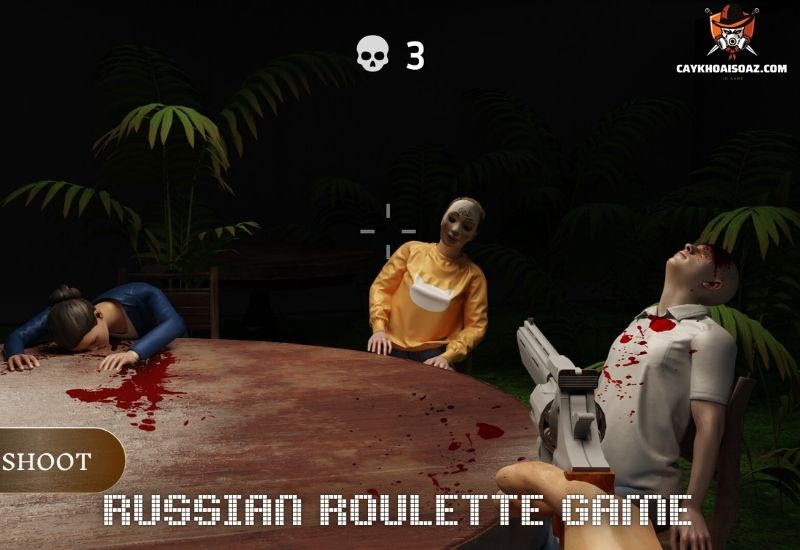Would you Rather?
Published on November 11, 2024

Russian Roulette is one of the most infamous and enigmatic concepts in global culture. Known as a deadly game of chance where players risk their lives with a revolver loaded with a single bullet, it evokes a mixture of horror, fascination, and existential dread. Its history is obscure and steeped in myth and speculation, while its depiction in literature, cinema, and popular culture amplifies its chilling allure. This article explores the origins, evolution, cultural significance, and myths surrounding Russian Roulette. Let’s explore with caykhoaisoaz.com
The precise origins of Russian Roulette remain shrouded in mystery, but various theories and accounts suggest its roots may lie in the Russian military and aristocratic traditions of the late 19th and early 20th centuries.
Military Tradition:
Aristocratic Roots:
The game may also have its roots in the Russian aristocracy, which had a penchant for high-stakes games of chance. Duels and other life-threatening contests were not uncommon among the upper class, suggesting that Russian Roulette could have been a grim extension of these traditions.
Russian Roulette involves a revolver loaded with a single bullet. The cylinder is spun, leaving the chamber alignment to chance, and participants take turns pointing the weapon at their heads and pulling the trigger. The odds of survival are dictated by the number of chambers in the revolver (typically six) and the remaining empty chambers after each turn. The lethal nature of the game lies in its escalating probability of death with each successive round.
This simplicity, combined with its life-or-death stakes, creates a macabre tension that has fueled its dramatic depictions.
Russian Roulette is as much a cultural myth as it is a concept of actual risk-taking. Its representation in popular culture and its symbolic meaning have contributed to its enduring notoriety.
The original short story by Surdez served as a blueprint for Russian Roulette’s grim allure. Over time, writers have used the game to explore themes of despair, courage, and existentialism.
Russian Roulette achieved widespread recognition through its harrowing portrayal in films, most notably:
The act of participating in Russian Roulette, whether real or fictional, delves into profound psychological and existential territory. It forces participants (and viewers) to confront mortality and grapple with the randomness of life.
Symbol of Recklessness:
Test of Courage or Despair:
Philosophical Undertones:

While Russian Roulette is predominantly a fictional concept, instances of its real-life imitation have resulted in tragedy. Cases of individuals attempting to emulate the game, either as a dare, under peer pressure or while intoxicated, have led to accidental deaths. These incidents underscore the inherent dangers of glamorizing such a perilous activity.
Russian Roulette’s depiction in popular culture has drawn criticism for potentially glamorizing an inherently deadly act.
Media Responsibility:
Ethical Considerations:
Despite its grim nature, Russian Roulette continues to captivate the imagination. Its portrayal in various media often transcends the literal act, using it as a narrative tool to explore themes of risk, morality, and human nature.
A Metaphor for High-Stakes Decisions:
Cultural Fascination with Risk:
The history and myth of Russian Roulette intertwine to create a potent symbol of risk, mortality, and human folly. While its origins remain uncertain, its depiction in literature, cinema, and culture has cemented its place in the collective imagination. However, the game’s deadly nature and tragic real-life consequences serve as stark reminders of the importance of respecting the value of life and the dangers of glamorizing reckless behavior. Russian Roulette, whether as a cultural metaphor or a cautionary tale, continues to evoke powerful emotions and provoke deep contemplation about the human condition.